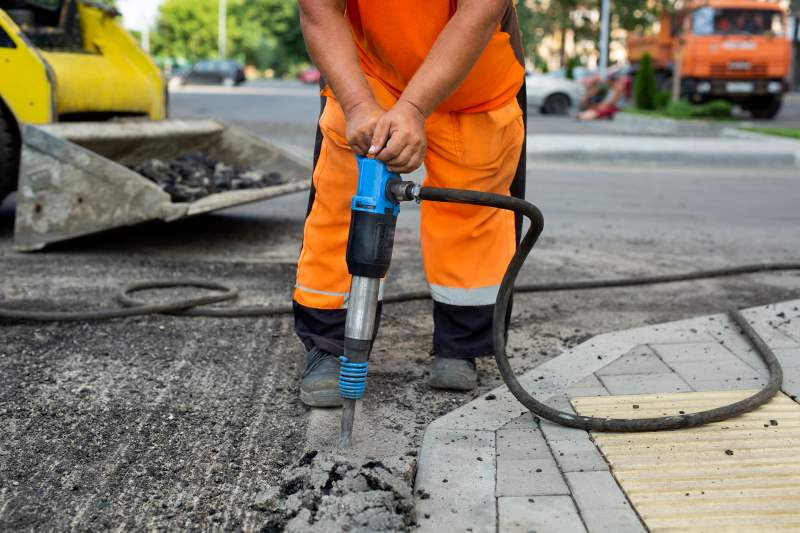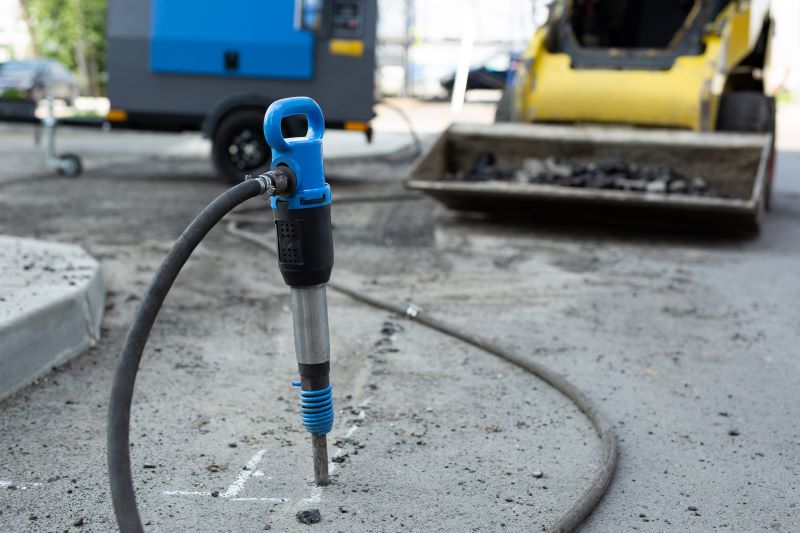If you’re planning to build a fence, plant trees, erect a pergola, or install a letterbox, a post hole borer can save you a serious amount of time and effort. But before you rush off to hire one, you’ll likely face a common question: Should you rent an electric or petrol post hole borer?
Both options are readily available at most equipment hire centres in Australia, but each has its pros and cons depending on your project’s size, location, soil type, and your personal level of experience. In this guide, we break down the differences to help you make the right choice for your next job.
What Is a Post Hole Borer?
Also known as an auger, a post hole borer is a tool designed to drill narrow, vertical holes into the ground. These holes are used to install posts, stumps, and supports — commonly for fences, decks, landscaping, and even some foundation work.
Augers come with interchangeable drill bits in various diameters (usually from 100 mm to 350 mm), allowing you to match the hole size to your specific requirements.
Electric Post Hole Borers: Overview
How They Work:
Electric post hole borers plug into a power source or, in some cases, run on battery. These models are generally lightweight and designed for smaller-scale jobs.
Best Suited For:
- Domestic garden projects
- Soft or moderately compact soil
- Users with limited physical strength
- Locations with nearby power access
Advantages:
- Lightweight and easy to handle: Ideal for beginners or solo users.
- Low noise levels: Suitable for suburban or noise-sensitive areas.
- No emissions: Great for enclosed spaces or environmentally conscious users.
- Low maintenance: Fewer moving parts mean less upkeep and no fuel mixing.
Limitations:
- Power limitations: Struggles in rocky, clay-heavy, or dense soil.
- Cord or battery dependency: Can be inconvenient on large or remote sites.
- Smaller bit size and drilling depth: May require extra effort or multiple passes.
Petrol Post Hole Borers: Overview
How They Work:
Petrol borers run on a two-stroke or four-stroke engine and deliver significantly more power than electric models. They’re often available in single- or two-person configurations, depending on size.
Best Suited For:
- Large fencing jobs or multiple holes
- Hard, dry, or rocky ground
- Rural or remote locations
- Commercial or trade use
Advantages:
- High power and torque: Can tackle tough ground conditions with ease.
- Mobility: No cords or power limitations — take it anywhere.
- Multiple auger sizes supported: Handles wider or deeper holes as needed.
- Faster hole drilling: Ideal for large jobs where efficiency matters.
Limitations:
- Heavier and noisier: May require two people for safe operation.
- Exhaust fumes: Not suitable for enclosed spaces or eco-sensitive areas.
- Maintenance required: Fuel mixing, spark plug checks, and filter cleaning.
- More physically demanding: Stronger vibration and kickback than electric models.
Electric vs Petrol: Feature Comparison
| Feature | Electric Borer | Petrol Borer |
| Power Source | Mains or battery | Petrol (2-stroke or 4-stroke) |
| Ease of Use | Simple, low noise, low maintenance | Requires fuel, more noise, higher output |
| Soil Suitability | Soft to medium soil | Hard, clay, rocky, or dry soil |
| Portability | Limited by cord/battery | Highly portable, works anywhere |
| Environmental Impact | Emission-free | Emits fumes and greenhouse gases |
| Noise Levels | Quiet operation | Loud engine, not ideal for urban areas |
| Job Type | Light-duty DIY work | Medium to heavy-duty, large-scale jobs |
| Cost to Hire (avg) | Lower per day (from $50–$70) | Higher per day (from $80–$150) |
Which Should You Rent? Key Considerations
1. Size and Scope of the Job
Small backyard projects? Electric will likely do the job.
Installing 30+ fence posts on a farm? Petrol is the better choice.
2. Soil Type
Sandy, loamy, or moist soils are manageable with electric models.
Clay, dry, or rocky soils require the torque and depth capacity of a petrol auger.
3. Access to Power
If you’re working in a remote or rural location with no electricity, petrol is your only practical choice.
4. User Experience
Novice DIYers may feel more comfortable with electric models due to their quieter and simpler operation.
Petrol borers require a bit of strength and confidence, especially when hitting hard patches.
5. Number of People Available
Working solo? An electric borer is lighter and easier to manage alone.
Have help on-site? A two-person petrol auger speeds things up and handles tougher conditions.
Cost Comparison for Hire in Australia
Most equipment hire centres offer both types, with pricing based on daily or weekend use.
- Electric post hole borer:
From $50–$70 per day, or $100–$130 for a weekend.
Usually includes 1 auger bit (extra sizes available for a fee). - Petrol post hole borer (single person):
From $80–$100 per day, or $150–$180 for a weekend. - Petrol post hole borer (two-person):
From $110–$150 per day, or $180–$220 for a weekend.
Great for heavy-duty or commercial use.
Prices vary depending on location, availability, and auger size, so it’s always best to call ahead.
Final Verdict: Which Should You Rent?
There’s no one-size-fits-all answer. The right post hole borer depends on your project size, soil conditions, and comfort level using power tools.
Choose Electric if:
- You’re working on a small garden project or building a single structure
- The soil is soft and easy to dig
- You have power access nearby
- You prefer a quieter, lighter machine
Choose Petrol if:
- You’re tackling a big fencing job or need to dig multiple holes
- The soil is hard, dry, or rocky
- You’re in a remote area without power
- You need greater digging speed and power
Either way, hiring the right equipment will make your job significantly faster, cleaner, and less physically demanding than digging by hand.


